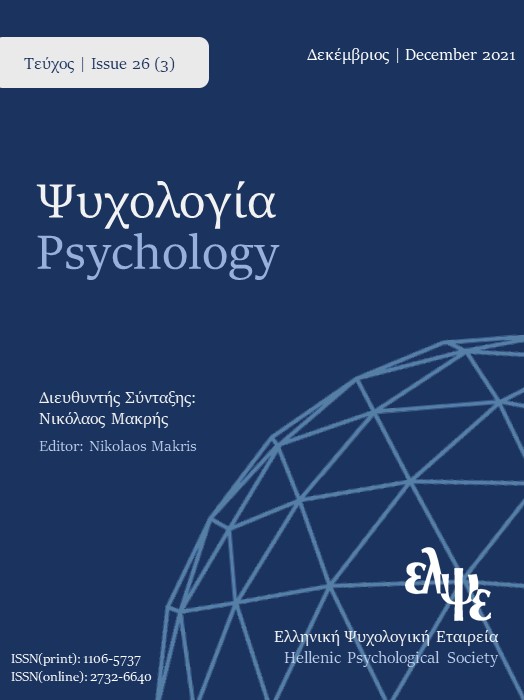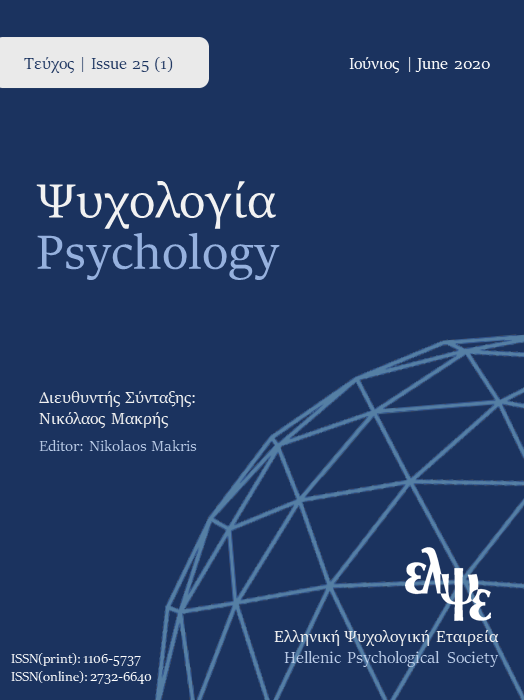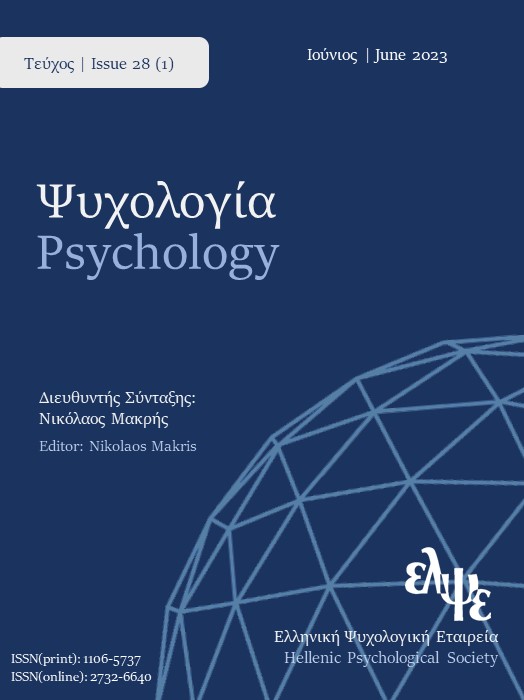Μultilevel intervention to support school/educational communities in the context of the COVID-19 pandemic: empirical findings and interventions

Abstract
In this paper, a multilevel intervention for the assessment of needs and the support of school communities during the COVID-19 pandemic is presented, focusing on the connection of theory, training, research, and practice. The paper includes two connected sections, describing: the development and selective data of a research project on the examination of the perceptions of school community members regarding psychological and academic aspects of the impact of the pandemic, as well as educational actions and interventions to support school and educational communities. The measures used, depending on the participant group, include the Generalised Anxiety Scale (GAD-7), the Brief Resilience Scale (BRS), a questionnaire regarding distant learning, as well as open-ended and closed questions developed for the purposes of this study. Participant groups include teachers (n = 414), parents (n = 499) and adolescents (n = 256). The findings indicate high levels of anxiety and medium to low levels of resilience amongst teachers and parents, as well as increased worry in the adolescent group. Adult participants expressed the need for the appropriate preparedness of school communities to manage the current crisis. The findings, in relation to international relevant literature, constituted the basis for the development of various actions in the context of social justice during each stage of the pandemic, including the development and dissemination of informative material and resources, training for teachers/parents, training for undergraduate/postgraduate students, supportive actions for school communities and international collaborations. In this article, the role of Universities in the provision of school psychological services and the need to develop holistic preventive plans for school crisis management at a national level are discussed.
Article Details
- How to Cite
-
Hatzichristou, C., Lianos, P., Lampropoulou, A., Georgakou-Koutsonikou, N., Yfanti, T., & Georgouleas, G. (2022). Μultilevel intervention to support school/educational communities in the context of the COVID-19 pandemic: empirical findings and interventions. Psychology: The Journal of the Hellenic Psychological Society, 26(3), 111–125. https://doi.org/10.12681/psy_hps.28855
- Section
- SPECIAL SECTION

This work is licensed under a Creative Commons Attribution-ShareAlike 4.0 International License.
The journal PSYCHOLOGY adopts a Platinum open-access policy. Submission, processing or publication costs are waived by the Hellenic Psychological Society. Papers published in the journal PSYCHOLOGY are licensed under a 'Creative Commons Attribution-ShareAlike 4.0 International' licence. The authors reserve the copyright of their work and grant the journal the right of its first publication. Third-party licensees are allowed to use the published paper immediately after publication as they wish, provided they retain the defined by the license copyright formalities, regarding the reference to its author(s) and its initial publication in the journal PSYCHOLOGY. Moreover, any adjusted work should be shared under the same reuse rights, so with the same CC license.




